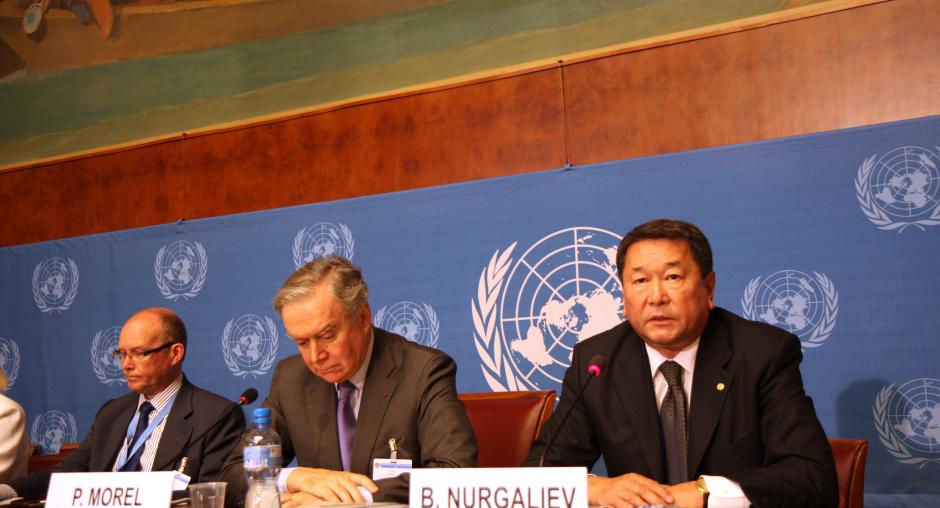At Geneva discussions, OSCE Chairmanship underlines importance of Incident Prevention and Response Mechanisms

GENEVA, 27 July 2010 - At the end of today's 12th round of the Geneva discussions, Kazakhstan's OSCE Chairmanship underlined the importance of Incident Prevention and Response Mechanisms (IPRMs) and fully-functioning hotlines.
The participants' general assessment is that the situation on the ground has been calm, notwithstanding some incidents of concern. They discussed best practices and improved co-operation on the ground.
"An effective way to gradually build much-needed confidence and trust is the successful functioning of the Incident Prevention and Response Mechanisms," said Ambassador Bolat Nurgaliyev, the Special Representative of the OSCE Chairperson-in-Office for Protracted Conflicts. "Concrete problems affecting daily the local communities as well as the whole range of humanitarian issues must be addressed, and regular meetings of both IPRMs without preconditions are indispensable."
Nurgaliyev chaired the discussions together with Ambassador Antti Turunen of the UN and Ambassador Pierre Morel of the EU. The three presented a paper on a framework for a potential agreement on non-use of force and international security arrangements that could be addressed through a concept of sequential approach.
Working Group II, which focuses on humanitarian issues, was for the first time co-moderated on behalf of the OSCE by Senior Policy Support Officer Rasa Ostrauskaite and addressed in detail the drafts of relevant documents.
The Co-Chairs agreed with the participants that the next session would be in Geneva on 14 October 2010.
